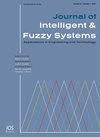基于GT-DQN的新能源充电卸载方法
IF 1
4区 计算机科学
Q3 COMPUTER SCIENCE, ARTIFICIAL INTELLIGENCE
引用次数: 0
摘要
绿色边缘的利用已经成为新能源汽车发展的一个很有前途的范例。然而,由于有限的电力资源和巨大的传输需求,这些车辆的充电面临着巨大的挑战。提出了一种基于Wifi-6通信的新架构,充分利用异构边缘节点,实现任务的实时处理和计算。为解决协同动力资源优化问题,考虑了不同车辆之间的干扰,对任务卸载进行了优化。特别地,将充电集群之间的电力争夺建模为精确博弈,并与深度q -网络(Deep Q-Network, DQN)算法联合提出了一种任务卸载策略模型,用于二次应用。从而优化和提高了充电效率和任务卸载计算。结果表明,该体系结构和算法显著提高了资源总消耗,并证明了纳什均衡。本文章由计算机程序翻译,如有差异,请以英文原文为准。
An offloading method in new energy recharging based on GT-DQN
The utilization of green edge has emerged as a promising paradigm for the development of new energy vehicle (NEV). Nevertheless, the recharging of these vehicles poses a significant challenge in due to limited power resources and enormous transmission demands. A novel architecture based on Wifi-6 communication is proposed, which makes the most of heterogeneous edge nodes to achieve real-time processing and computation of tasks. To address the collaborative power resource optimization problem, the interference between different vehicles is considered, and the task offloading is optimized. In particular, the power contention among recharging clusters is modeled as an exact game and a task offloading strategy model is proposed jointly with the Deep Q-Network (DQN) algorithm, which is employed by a secondary application. Thereby, the recharging efficiency and task offloading computation are optimized and improved. Results indicate that the total resource consumption is favorably improved with this architecture and algorithm and the Nash equilibrium is also demonstrated.
求助全文
通过发布文献求助,成功后即可免费获取论文全文。
去求助
来源期刊

Journal of Intelligent & Fuzzy Systems
工程技术-计算机:人工智能
CiteScore
3.40
自引率
10.00%
发文量
965
审稿时长
5.1 months
期刊介绍:
The purpose of the Journal of Intelligent & Fuzzy Systems: Applications in Engineering and Technology is to foster advancements of knowledge and help disseminate results concerning recent applications and case studies in the areas of fuzzy logic, intelligent systems, and web-based applications among working professionals and professionals in education and research, covering a broad cross-section of technical disciplines.
 求助内容:
求助内容: 应助结果提醒方式:
应助结果提醒方式:


